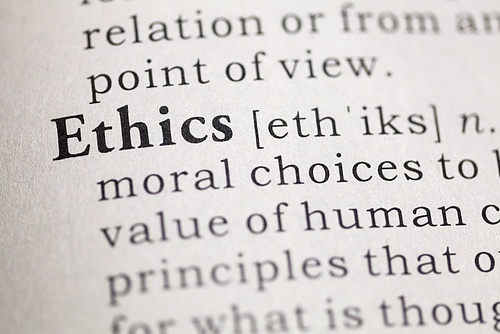
Was it wrong for Senator Tim Kaine to accept $201,600 in corporate gifts –many of them from businesses and lobbyists seeking favors from state– during his eight years as Virginia’s lieutenant governor and then governor? That’s the question voters may ask as Mr. Kaine campaigns as Hillary Clinton’s vice-presidential running mate.
Sadly, our courts and state ethics commissions seem to be turning a blind eye to conflicts of interest.
Neither former Governor Kaine nor his successor Bob McDonnell broke any law when they accepted costly gifts from businessmen who had pending business interests before the state– because the State of Virginia had no conflict of interest law on the books when they accepted their gifts.
Yet the lobbyists’ beneficence is revealing. According to the New York Times, Mr. Kaine’s publically disclosed gifts included a private jet to a meeting in Colorado from a pharmaceutical company that was lobbying him over drug sales; an expense-paid trip to a college basketball tournament in Indiana from a utility company with pending state interests; and four cases of wine from a lobbying firm that had just secured the Governor’s signature on a bill to help Virginia’s small vineyards. The Times reported that “a total of 139 companies or individuals gave about 220 gifts or reimbursements for travel to Mr. Kaine to work-related conferences while he served as governor from 2006 to 2010 and lieutenant governor from 2002 to 2006.”
In its June 27 decision (McDonnell v. United States), the Supreme Court noted that Governor McDonnell and his wife Maureen accepted from Jonnie Williams of Star Scientific, a dietary supplement company, loans of $50,000 and $20,000; designer clothing worth $20,000; a $15,000 contribution to their daughter’s wedding; a $10,000 wedding gift; a Rolex watch; private jet travel; a weekend trip; and several rounds of golf for the McDonnell family. As Governor, Mr. McDonnell arranged meetings for Williams with relevant state officials and hosted events at the Governor’s mansion to support the company’s request for state assistance.
Meanwhile in Massachusetts, nine senators accepted a 10-day travel junket to Israel last December from the Jewish Community Relations Council of Greater Boston (JCRC). The gift closely followed in time the legislature’s adoption of a pro-Israel resolution lobbied by JCRC.
What do these cases tell us?
Senator Kaine has yet to pay a price for his conflicts of interest. In June, the Supreme Court set aside the several jury convictions of former Governor McDonnell for bribery. And in Massachusetts, the state Ethics Commission rejected citizen complaints against the nine senators on the ground that they had signed forms saying that the trips would serve “a legitimate public purpose”—despite a travel itinerary that focused on Israeli tourism and international politics, rather than Massachusetts interests. A Boston Globe article described the junkets as “Floating in the Dead Sea—in the public interest.”
In overturning the convictions of Governor McDonnell, the Supreme Court made no reference to conflict of interest. Chief Justice Roberts closed his opinion with the following comment: “There is no doubt that this case is distasteful; it may be worse than that. But our concern is not with tawdry tales of Ferraris, Rolexes, and ball gowns. (emphasis added). It is instead with the interpretation of the federal bribery stature.”
Upon his return from the Israel gift trip, State Senate President Stanley Rosenberg suggested in a Boston Globe podcast that state ethics laws are “way overreaching.”
My late father was a purchasing agent for a steel company in Oklahoma. I remember holiday seasons when prospective suppliers had expensive gifts delivered to our door. My father always returned those gifts. He didn’t need laws, regulations or company rules to tell him that conflict of interest was wrong.
Is no one concerned these days about lavish gifts from lobbyists eager for state favors? Like Citizens United-inspired big money contributions through political action committees for candidates and elected officials, gifts to legislators erode trust in government–whether or not such gifts are disclosed and whether or not they succeed in securing government favors.
Indeed, we need to enact and enforce meaningful ethics laws to govern the acceptance of gifts by members of Congress and state legislators.